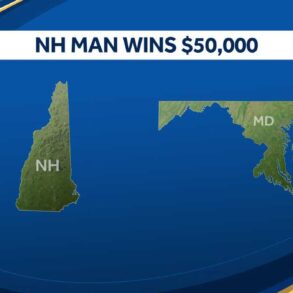Spotlight PA is an independent, nonpartisan, and nonprofit newsroom producing investigative and public-service journalism that holds power to account and drives positive change in Pennsylvania. Sign up for our free newsletters.
HARRISBURG — It wasn’t simply opposition to recreational marijuana that led a GOP-led state Senate panel to roundly reject a Democratic pitch to legalize the drug earlier this month. Lawmakers balked at selling cannabis at state-run stores similar to Pennsylvania’s liquor shops and shutting out existing medical dispensaries.
Since that vote, there hasn’t been any public movement on legalization, and it’s unlikely any deal will be reached by the June 30 budget deadline.
That’s because of the complexity of the issue and lawmakers’ significant remaining areas of disagreement, including just how much of a leg up existing cannabis companies should get in a potentially multibillion-dollar market.
As the legislature mulls that question, major companies that sell medical marijuana in Pennsylvania and recreational cannabis in other states are spending millions of dollars to influence them.
At least two of the legalization proposals circulating in Harrisburg would allow medical sellers to convert to recreational sales, according to the bills’ sponsors.
Entering the recreational market first offers a major advantage, often letting sellers begin operating before stricter regulations are fully enacted and capturing a significant share of customers before competitors are off the ground.
That happened in Maryland when recreational cannabis was legalized in 2023: medical dispensaries were allowed to immediately begin selling to recreational customers, while social equity applicants had to wait nearly a year for licensing approval before beginning the process of setting up stores. As they waited, medical and adult-use sales exceeded $1.1 billion.
Cannabis companies are willing to spend heavily to secure that kind of head start, said Chris Goldstein, a Pennsylvania-based advocate with the pro-legalization National Organization for the Reform of Marijuana Laws.
In 2024 alone, cannabis companies spent at least $1.6 million lobbying lawmakers in Pennsylvania.
Big cannabis companies also have the resources to sue when they oppose regulations. A lawsuit brought by a multistate operator, for instance, led federal courts to strike down Maine’s requirement that license holders be state residents.
Goldstein said lobbying and lawsuits can make it difficult for states to enact consumer protection regulations that succeed at making a market competitive for smaller businesses.
“States are trying to compete against international multibillion-dollar corporations who have lobbyists, lots of money, and … are quite litigious to boot,” Goldstein said.
Goldstein favors excluding existing medical cannabis dispensaries from recreational sales, a proposition that appears unlikely to succeed with Pennsylvania lawmakers.
But other consumer advocates say there are ways for the state legislature to prioritize small businesses, especially those impacted by the war on drugs, while still allowing medical sellers to participate in the industry.
Kristal Bush is a cannabis advocate who formerly worked for Trulieve, one of the largest cannabis companies in the U.S. If Pennsylvania legalizes recreational cannabis, she believes it should delay commercial sales to give small businesses time to set up dispensaries.
Moving too quickly without giving them this setup time, she said, is what enables legacy businesses to dominate the industry.
“If we’re just pushing for legalization this year … that’s not enough time to get people that [are not] on the legacy market the resources to be able to compete,” Bush told Spotlight PA. “We’re really setting our people up for failure.”
Bush said the state should work with small businesses to provide “pre-industry support” over the next few years. That includes the state proactively looking for social equity applicants, providing training and technical assistance for those applicants, and creating workforce development programs for the cannabis industry, all before legalization occurs.
She supports allowing medical dispensaries to convert their existing licenses to permit recreational sales. However, Bush thinks all new licenses should be reserved for small business owners, particularly those from communities disproportionately impacted by the criminalization of cannabis.
All of the proposals on the table in Pennsylvania include social equity measures. Ideas include directing tax revenue to grant and loan programs for communities impacted by the war on drugs and expunging the records of individuals convicted of nonviolent marijuana-related crimes.
Damian Fagon — director of the Bronx Cannabis Hub, which helps residents navigate New York’s cannabis laws, and former chief equity officer of the state’s Office of Cannabis Management — said the legislature can also implement policies to make the industry more equitable once it’s up and running.
For example, he suggested lawmakers could require dispensaries to stock a certain percentage of their inventory from cannabis growers based in Pennsylvania or from those who qualify as social equity licensees.
Fagon emphasized that achieving equity depends on allowing medical sellers and small businesses to access the recreational market at the same time, though he acknowledged that synchronizing this rollout would be challenging.
New York did not initially allow its small network of medical cannabis sellers to join the recreational market, instead prioritizing the establishment of dispensaries run by those harmed by marijuana prohibition. The lack of licensed dispensaries resulted in a large illicit market.
“There are entrenched interests in Pennsylvania that you know will have a lot of influence over this legislative process, and not in the way that advantages small business,” Fagon said.
Lobbyists for large medical cannabis companies have pushed back against proposals aimed at excluding existing sellers, arguing that these approaches would just harm consumers.
Meredith Buettner, executive director of the Pennsylvania Cannabis Coalition — a trade group representing medical cannabis sellers and associated businesses — said medical companies have already invested millions to build a robust network that could easily transition into the recreational market.
She also warned that barring medical dispensaries from the recreational market could lead to a surge in unlicensed sellers, similar to what happened in New York.
“Instead of reinventing the wheel, Pennsylvanians would be best served by allowing the medical industry to continue in the market they already invested millions in,” Buettner told Spotlight PA.
Several consumer protection advocates who focus on the country’s burgeoning recreational cannabis industry told Spotlight PA that they would have reservations about bills that allow well-established sellers to enter Pennsylvania’s new market without strict guidelines, such as limits on how many licenses medical sellers can obtain or mandating the dispensaries to stock products from local growers.
Lawmakers are floating legalization proposals in Harrisburg, but none have formally introduced bill language yet.
However, a previous version of a bill backed by state Sen. Dan Laughlin (R., Erie) — who heads a key committee and has the best shot at pushing a measure through the chamber — included restrictions on the number of licenses and required medical sellers seeking a recreational license to “sponsor” a social equity candidate.
Laughlin has declined to comment on when he plans to reintroduce his bill, saying recently it’s “not ready yet. ”
While many lawmakers’ goal was to include a legal cannabis deal in this year’s budget — bringing with it badly needed revenue — it’s looking less likely, according to at least one key member.
Asked whether a cannabis agreement looked possible by the end of next month, state Rep. Rick Krajewski (D., Philadelphia), a sponsor of his chamber’s now-dead state store bill, told Spotlight PA, “I don’t think so, unless [the state Senate’s] tune changes.”
“The Senate has to get serious, and they have to either bring up the bill for reconsideration or send us something else,” he said.
State House Majority Leader Matt Bradford (D., Montgomery) said his chamber, having already advanced its pitch, is taking a backseat.
He’s now waiting to see if the state Senate will pass its own legalization bill. A spokesperson for the upper chamber did not return a request for comment.
BEFORE YOU GO… If you learned something from this article, pay it forward and contribute to Spotlight PA at spotlightpa.org/donate. Spotlight PA is funded by foundations and readers like you who are committed to accountability journalism that gets results.
This post was originally published on this site be sure to check out more of their content.




































